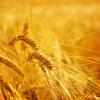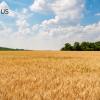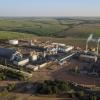The research focus of IBF is the integrated modeling of natural resources and ecosystems management using IIASA models such as the Global Biosphere Management Model (GLOBIOM) for the development of transformations in food and bio-based sectors that enable satisfying human needs while ensuring the sustainable use of terrestrial and marine environments.
The IBF Group strives to bring about transformations in the use and management of terrestrial, fresh water, and marine ecosystems for “happy people on a healthy planet” by informing national and international policies, and by engaging with businesses and civil society. For this, the group relies on a suite of well-established models, including the Global Biosphere Management Model (GLOBIOM) and the Global Forest Model (G4M), as well as its reputation as a credible partner in concrete policy/regulatory processes.
The group’s key research areas include:
- Land, water, and oceans management focusing on primary producers in agriculture, forestry, and fisheries and their impact on the environment, including land-based climate change mitigation.
- Bio-based sectors integrating consumers and producers across food, fibre, and fuel supply chains.
- Shocks, adaptation, and resilience within bio-based sectors including weather extremes.
- Food, nutrition, and poverty, as the main social outcomes of land, water, and oceans use.
- Integrated biosphere foresight and solutions developing forward-looking scenarios for the assessment of potential synergies and trade-offs between relevant Sustainable Development Goals at regional and global scales, and exploring national and international options for their achievement to inform policymaking.
Projects
Staff
News
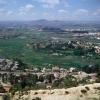
30 May 2024
Rapid urbanization in Africa transforms local food systems and threatens biodiversity
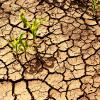
25 April 2024
Climate change could become the main driver of biodiversity decline by mid-century

22 April 2024
Marta Kozicka is National Champion for Austria in prestigious Frontiers Planet Prize
Events
Focus
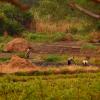
08 July 2024
Future food demand in The Gambia: can increased crop productivity and climate adaptation close the supply–demand gap?
The Gambia faces significant food availability issues due to low agricultural productivity. IIASA researchers and colleagues used the FABLE Calculator to explore actions to reduce the food supply-demand gap by 2050. The results, published in Food Security, reveal that current cropland will not meet food demand by 2050.
27 June 2024
Exploring plant-based food alternatives to advance global sustainability

Publications
Escobar Lanzuela, N. , Seber, G., Skalský, R. , Wögerer, M., Jung, M., & Malina, R. (2024). Spatially-explicit land use change emissions and carbon payback times of biofuels under the carbon offsetting and reduction scheme for international aviation. Science of the Total Environment 948 e174635. 10.1016/j.scitotenv.2024.174635. Pashanejad Silab, E., Kharrazi, A. , Araujo Gutierrez, Z., Robinson, B., Fath, B. , & Parrott, L. (2024). A functional connectivity approach for exploring interactions of multiple ecosystem services in the context of agricultural landscapes in the Canadian prairies. Ecosystem Services 68 e101639. 10.1016/j.ecoser.2024.101639. Rohde, M., Albano, C., Huggins, X., Klausmeyer, K., Morton, C., Sharman, A., Zaveri, E., Saito, L., Freed, Z., Howard, J., Job, N., Richter, H., Toderich, K., Rodella, A.-S., Gleeson, T., Huntington, J., Chandanpurkar, H., Purdy, A., Famiglietti, J., Singer, M., Roberts, D., Caylor, K., & Stella, J. (2024). Groundwater-dependent ecosystem map exposes global dryland protection needs. Nature 10.1038/s41586-024-07702-8. (In Press) Zhao, H., Fan, X., Bai, Z., Ma, L., Wang, C., Havlik, P. , Cui, Z., Balkovič, J. , Herrero, M., Shi, Z., & Chang, J. (2024). Holistic food system innovation strategies can close up to 80% of China’s domestic protein gaps while reducing global environmental impacts. Nature Food 10.1038/s43016-024-01011-z. Palazzo, A. , Kahil, T. , Willaarts, B. , Burek, P. , van Dijk, M., Tang, T. , Magnuszewski, P., Havlík, P. , Langan, S. , & Wada, Y. (2024). Assessing sustainable development pathways for water, food, and energy security in a transboundary river basin. Environmental Development e101030. 10.1016/j.envdev.2024.101030. (In Press) Niu, K., Li, M., Lenzen, M., Wiedmann, T., Han, X., Jin, S., Malik, A., & Gu, B. (2024). Impacts of global trade on cropland soil-phosphorus depletion and food security. Nature Sustainability 10.1038/s41893-024-01385-9. (In Press)



